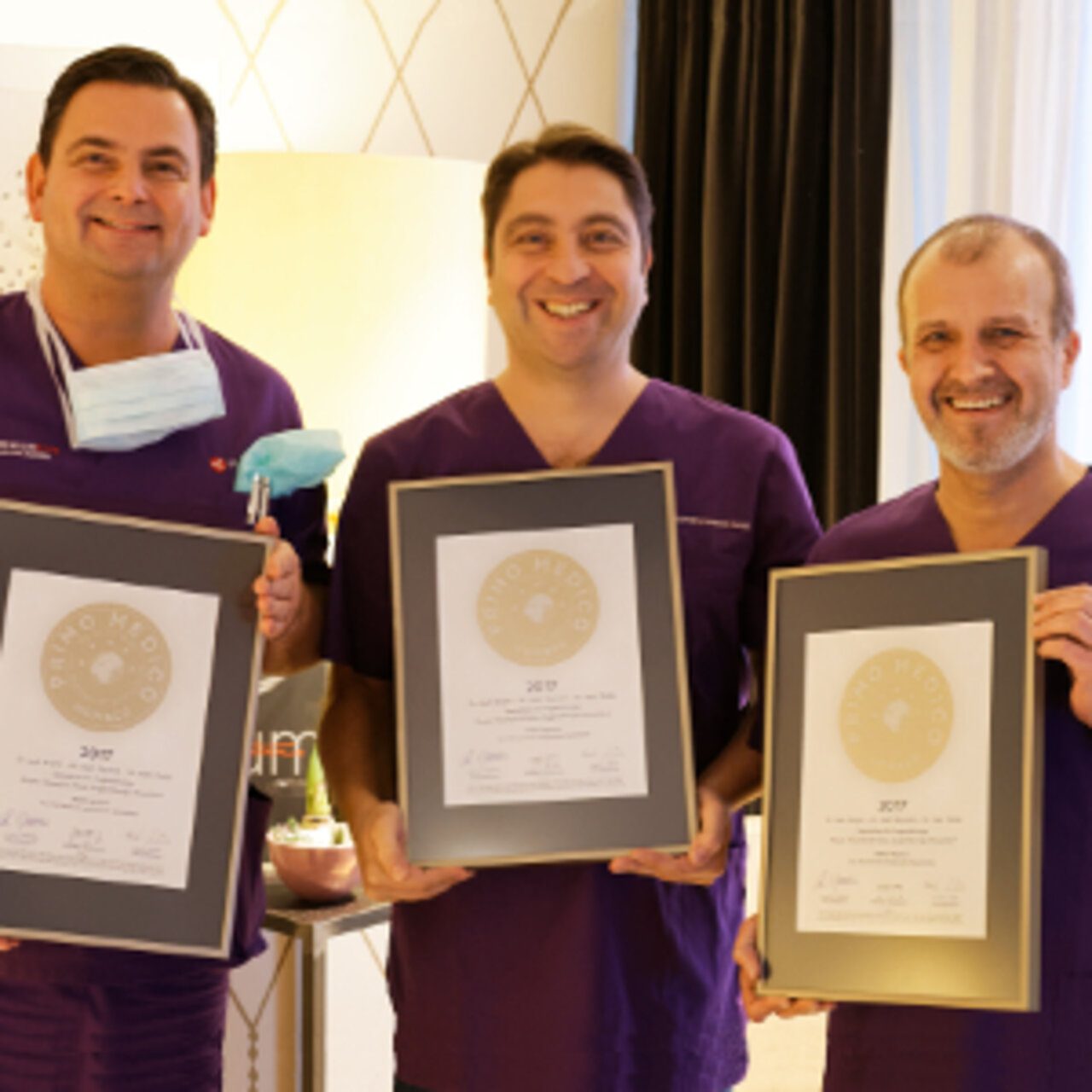Specialists in Refractive Surgery
3 Specialists found
Information About the Field of Refractive Surgery
What Does Refractive Surgery Mean?
Eye lasers are eye surgeries aiming to change the overall refractive power of the eye. Principally, the cornea is modified by a laser. The light rays are refracted precisely onto the retina at the posterior eyeball wall, allowing the patient to see clearly without the help of optical aid.
For Which Eye Diseases Is Refractive Surgery Used?
Refractive surgery is used for people who want to see clearly without visual aids (glasses or contact lenses). Myopia, hyperopia, and astigmatism can be treated. The incoming light rays from the environment are not directed to a point on the retina. The focal point is either in front of or behind the retina in these forms of ametropia so that only a blurred image is produced.
Refractive surgery makes changes to the eye so that the refractive power of the lens and the cornea, together with the retina's distance, are consistent. A certain thickness of the cornea is required for such surgeries. The smaller the correction, the more successful is the result of the laser surgery.
Which Treatment Methods Are Available?
LASIK :
LASIK stands for laser in-situ keratomileusis. First, a superficial corneal lamella (flap) is incised and folded down so that the laser hits the middle layers of the cornea directly. The underlying corneal tissue is ablated with the cold light laser according to the desired change in refractive power. The flap is then folded back. This method allows corrections from -2dpt to -10dpt for myopia and up to +4dpt for hyperopia. Even astigmatism up to +4dpt can be corrected.
LASEK:
LASEK stands for laser-epithelial keratomileusis, in which the top layer of the cornea, the so-called corneal epithelium, is ablated with a cold light laser. With this procedure, corrections of myopia from -4dpt to -8dpt can be achieved.
ReLEx SMILE:
ReLEx stands for Refractive Lenticule Extraction, and SMILE stands for small incision lenticule extraction. ReLex smile is a method in which the central corneal tissue is removed without cutting a flap as done in the LASEK procedure. Access is minimally invasive through a 2-3mm opening, i.e., a keyhole technique. ReLex smile can correct myopia from -2 to -10 diopters and astigmatism up to 5 diopters.
Ocular Lenses:
An artificial lens is inserted into the eye in this kind of surgery, which is used to correct ametropia and replace a diseased lens (in cataract). The artificial lens is implanted in addition to the own lens to correct ametropia. Preferably, the lens is implanted in the posterior chamber of the eye between the iris and the natural lens. This method allows the eye to continue to focus naturally (accommodation) while correcting the existing ametropia. The procedure is reversible, which means the lens can be removed or replaced if necessary. In cataracts, the natural lens is replaced, and existing defective vision can also be corrected with a corresponding lens.
Advantages of Refractive Surgery
Refractive surgery is an alternative therapy concept that promises high success rates. It enables normal long-term vision without optical aids. The expectation of the surgery result should be discussed in the preliminary examination to clarify possible discrepancies. The chances of surgery success depend on factors such as corneal thickness, degree of refractive power difference to the desired norm, the humidity of the eyes, etc.
Disadvantages and Risks
As with any surgery, risks must be considered. Complications can arise due to the patient’s risk factors, which depend on pupil size, the cornea's thickness, the diopter number, and the general state of health. These include reduced contrast in vision, infection, over- or under-correction, reduced corneal stability, and scarring.
Which Doctors are Specialists in Refractive Surgery?
Every patient who needs a doctor wants the best medical care. Therefore, the patient is wondering where to find the best clinic. As this question cannot be answered objectively, and a reliable doctor would never claim to be the best one, we can only rely on the doctor’s experience.
We help you to find an expert for your illness. All listed doctors and clinics have been checked by us for their outstanding specialization in refractive surgery and are awaiting your inquiry or treatment request.
Sources:
Lang et al.: Augenheilkunde . 4. Auflage. Thieme 2008, ISBN 978-3-131-02834-1.
Grehn: Augenheilkunde . 29. Auflage. Springer 2005, ISBN 3-540-25699-7.


